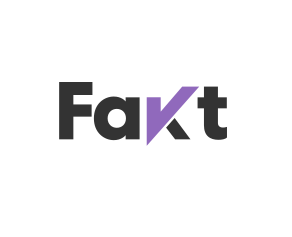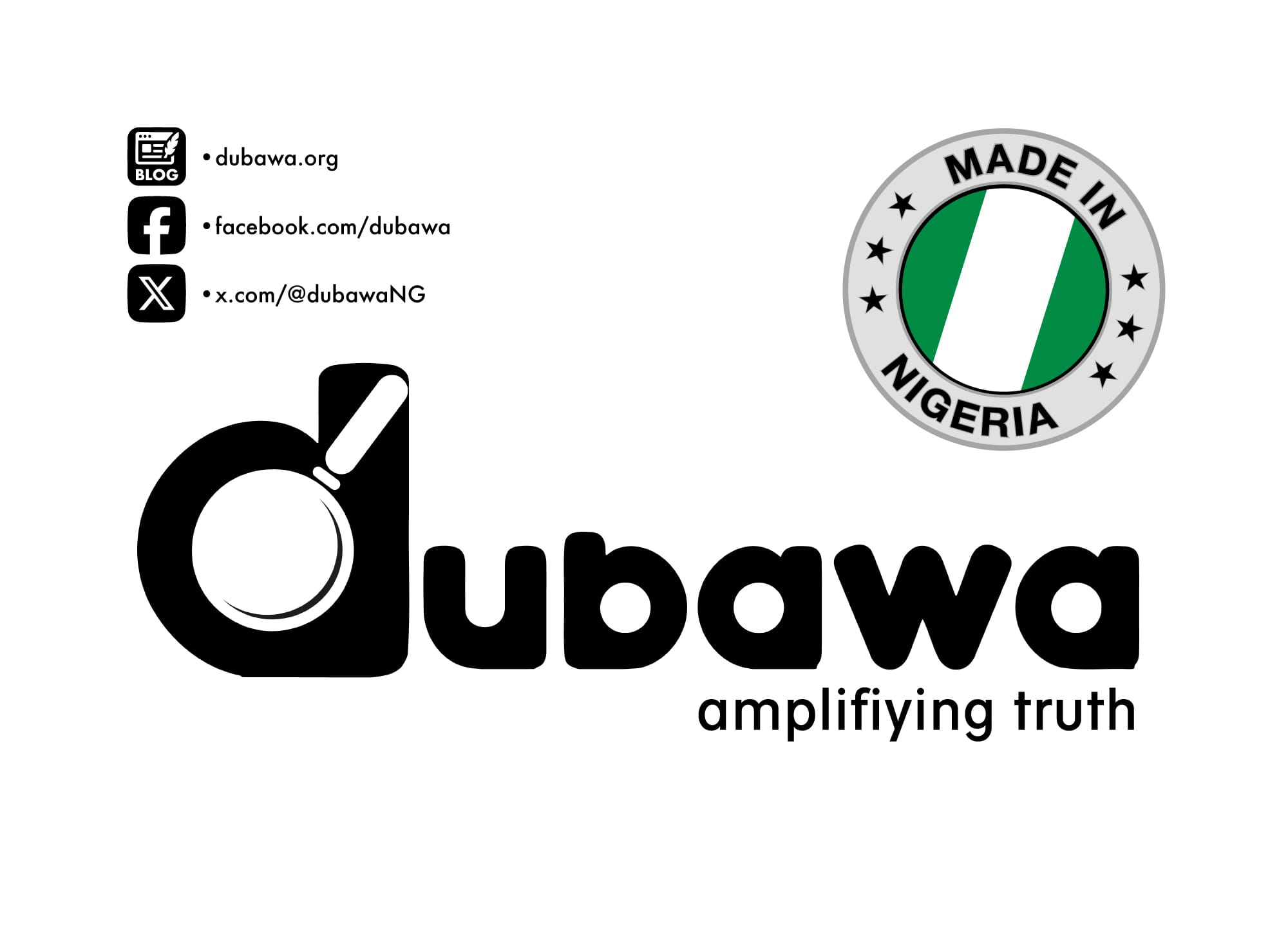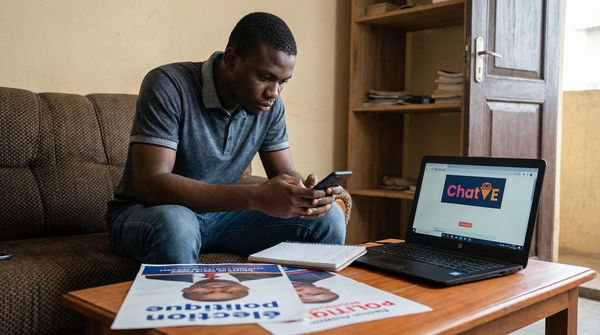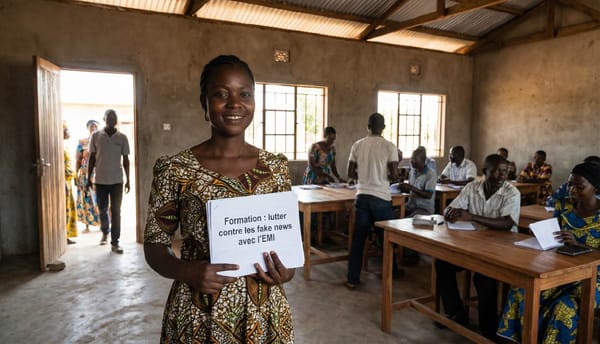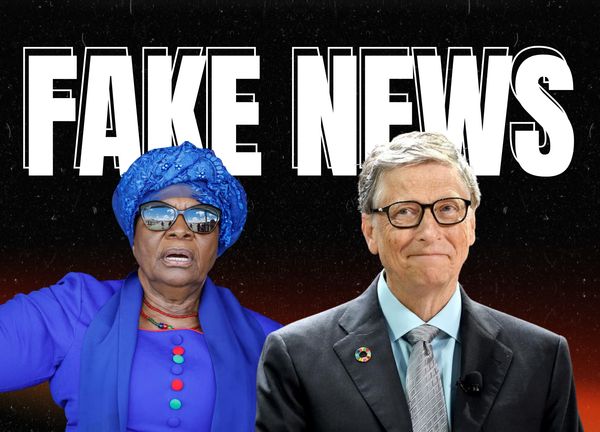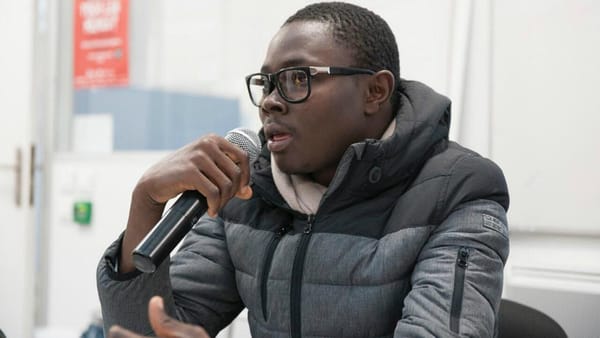Tordre ou fausser l’information favorise la manipulation des citoyens et représente un danger pour la société. Les moyens sont légion : fake-news, trucages, désinformation. Pour lutter contre ce fléau, plusieurs organisations et médias spécialisés dans le fact-checking, ont vu le jour. Parmi eux, Dubawa. Initialement établi au Nigeria, ce projet s’est étendu dans plusieurs pays d’Afrique de l’Ouest : le Ghana, le Liberia, la Gambie et la Sierra Leone.

Le principe de Dubawa consiste à utiliser plusieurs moyens de vérification, dont les « cinq principes du Réseau International de Fact-checking ». Dans un premier temps,les différents acteurs (journalistes, fact-checkers, chercheurs) analysent des faits adressés par les citoyens ou choisis au sein de la rédaction. Ils étudient la pertinence des demandes, leur impact dans une publication, veillent au respect de l’équité, pour bien montrer qu’il n’y a aucun parti pris. Ils utilisent plusieurs outils afin de certifier l’authenticité des sujets et vérifier la fiabilité de leurs sources. Lors de la rédaction de l’article ou de l’information, le fact-checker explique le contexte et la méthode de vérification, présente les preuves qui l’appuient, puis l’éditeur effectue un dernier check-up avant de publier.

La méthode Dubawa
La vérification des informations repose sur une procédure qui favorise des sources bien définies :« nommées » (à l’inverse des sources anonymes), impartiales, vérifiables et multiples.
Parfois, la vérification s’avère compliquée, par exemple lorsque l’accès à certaines informations est bloqué par un tiers. Ou bien quand il s’agit d’une opinion dont les fondements sont nébuleux, difficilement vérifiables. Dans ce cas, les fact-checkers expliquent dans des articles d’analyse pourquoi telle affirmation peut influencer, être trompeuse ou être vraie.
Les faits sont vérifiés sur différents canaux de diffusion, y compris les réseaux sociaux. Ils sont divisés en plusieurs catégories : vrai, partiellement vrai, faux, partiellement faux, « trompeur » (dans ce cas, soit le contexte est flou, soit l’information est difficilement voire non vérifiable). Il existe également diverses catégories de faits sur Facebook : les données peuvent être insuffisantes, les propos peuvent susciter le doute quant à la véritable pensée de leur auteur,en particulier lorsqu’il s’agit d’un contexte politique ou religieux. Les faits peuvent aussi être mentionnés « non admissibles », pour indiquer que le contenu n’est pas vérifiable ou peut provenir d’une opinion, ou encore « non notés », signifiant que l’information n’a pas été vérifiée.

Optimiser et promouvoir Dubawa
Plusieurs systèmes sont définis afin de promouvoir et de transmettre les enseignements de Dubawa sur les méthodes de fact-checking. En 2019, des bourses et une formation à la vérification des faits sont mises en place. Les explications sur les techniques d’analyse d’informations sont diffusées afin de permettre aux lecteurs et aux internautes de mieux démêler le vrai du faux. Le développement de Dubawa permet également d’ajouter plusieurs bureaux de fact-checking au sein des rédactions. Les chercheurs travaillent sur des projets de création d’outils numériques capables d’effectuer du fact-checking. Récemment, au Nigeria, Dubawa a mis au point Dubawa Chatbot, un outil d’intelligence artificielle grâce auquel les citoyens peuvent soumettre des faits à vérifier par la messagerie de WhatsApp. Il répond rapidement aux questions puisqu’il est connecté en temps réel aux données internet.
Attaché aux valeurs de la vérité et de la transparence, le programme Dubawa n’a de cesse de se développer pour lutter contre les fake-news et la désinformation. Il est devenu l’un des sites web de fact-checking les plus performants en Afrique de l’Ouest.

